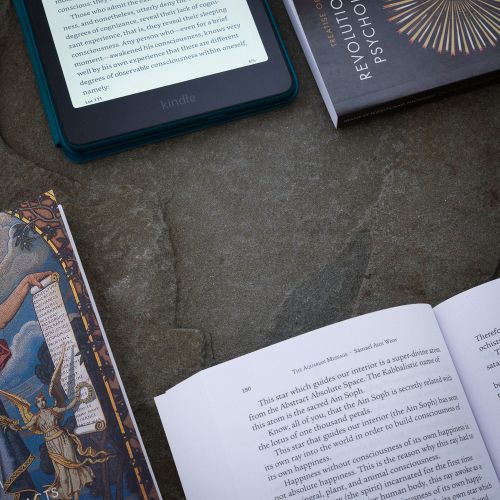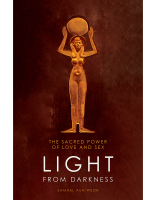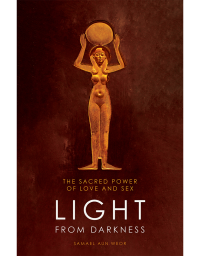The great master Wu Wen began his meditation practices under the wise guidance of Master Tuo Weng.
When I first saw Master Tou Weng he taught me to work on [the koan],1 “It is neither mind, nor Buddha, nor any thing.” Later Yun Feng and Yueh Shan and I, with several others, vowed to help each other in our striving for the Ultimate Enlightenment. Still later I went to see Huai Shi, who taught me to work on the “Wu” word. Then I journeyed to Chang Lu, where I practiced with my companion. When I met Chin of Huai Shang, he asked me, “You have practiced for six or seven years now; what have you understood?” I answered, “Every day I just feel that there is nothing in my mind.” Seeing that I had no true understanding, he asked, “From what source has your understanding been derived?” I was not sure whether I really knew the truth or not, so I dared not answer. He then said to me, “You can hold to your Work in quietness, but you lose it during activity.” This alarmed me, for he had hit my weak spot. “What should one do,” I inquired, “to understand this matter?” Chin answered. “Have you never heard what Chung Lao Tze said?”
“To understand this,
Face South to see the Dipper.”
Upon saying this, he left me abruptly.
As a result I became unconscious of walking when I walked and of sitting when I sat. I put aside the practice on the 無 “Wu”2 Hua Tou3 for a week and concentrated my mind on trying to understand what in heaven’s name he had meant by “facing South to see the Dipper.” One day, when I came to the Hall of Service and sat with a group of monks, the “doubt-sensation” stuck with me and refused to dissolve. The time for dinner came and passed. Suddenly I felt my mind become bright, void, light, and transparent, my human thoughts broke into pieces like skin peeling, as if I had merged in the Void, and I saw neither person nor thing appearing before me. I returned to consciousness about half an hour later and found that my body was running with sweat. Immediately I understood the meaning of seeing the Dipper by facing South. I went to see Chin. What ever questions he put to me I could answer without hindrance or difficulty; also, I could compose stanzas freely and effortlessly. However, I still had not stripped myself to the point of reaching the state of “leaping one step upward.”
Later I went to Hsiang Yen’s place in the mountains to spend the summer. The mosquitoes which infested the region bit me terribly. I had to move my hands continually to keep them away. Then I thought, “If the men in ancient times had sacrificed their bodies for the sake of Dharma, should I be afraid of mosquitoes?” With this in mind I tried to relax and endure the pests. With fists clenched and teeth tight I concentrated my mind solely on the 無 “Wu” word, bearing the continuously repeated stings of the mosquitoes with the utmost patience. Soon I felt both my mind and body sink quietly down like a house whose four walls had fallen. The state was like the Voidness; no attribute can be ascribed to it. I had sat down in the early morning, and it was not until afternoon that I arose from this period of meditation. Thereupon I knew for certain that Buddhism never misleads us or lets us down.
Although my understanding was then quite clear, it had not yet come to the point of full maturity. I still possessed slight, subtle, hidden, and unnoticeable wrong thoughts which had not been completely exhausted.
When Wu Wen chanted the mantra 無 WU he imitated with the U the sound of the wind in a mountain gorge, the sound of the sea when it hits the beach.
Wu Wen knew how to intelligently combine meditation with sleep. Wu Wen chanted his mantra with his mind and thought of nothing. When some desire or memory or thought arose, Wu Wen did not reject it, he studied it, analyzed it, comprehended it at all levels of the mind, and then forgot it in a radical, total or definitive way.
Wu Wen chanted his mantra in a continuous manner. He desired nothing, reasoned nothing. Any desire or thought that arose in his mind was duly comprehended and then forgotten. The chanting of the mantra was not interrupted. The mosquitoes and their stings no longer mattered.
He sat down to meditate in the early hours of the morning and only got up at sunset.
It is clear that one can enjoy meditation sitting cross-legged in the Eastern style as the Buddha did, or in the Western style in the position most comfortable, or lying down with the arms and legs open to the right and left like the five-pointed star, and with the body relaxed. Wu Wen was oriental and preferred to sit in the oriental style like the Buddha.
Until now the great Chinese master Wu Wen had managed to experience the illuminating emptiness, but something was still missing, he had not reached full maturity, in his mind there were erroneous and inadvertent thoughts, which secretly continued to exist, tempting little demons, little subconscious “I’s,” residues that still lived in the forty-nine subconscious apartments of Yaldabaoth.
After this experience of the illuminating void, Wu Wen went to the mountain at Kwung Chou...
“I meditated for six years there, for another six on the mountain of Lu Han, and for three more at Kuang Chou. Not until then did I gain my emancipation.”
At the end of these efforts and after having suffered much, Master Wu Wen achieved the final enlightenment. Master Wu Wen was a true athlete of meditation.
During his practices he understood that all mental effort creates intellectual tension and that this is harmful for meditation, because it obstructs enlightenment. Master Wu Wen never divided himself between a higher I and a lower I, because he understood that higher or lower are two sections of one same thing. Master Wu Wen felt himself, not as a god or a deva, in the style of mythomaniacs, but as an unhappy pluralized I, truly willing to die more and more within himself.
Master Wu Wen did not divide himself between me and my thoughts, because he understood that my thoughts and I are all me, and that it is necessary to be whole to achieve perfect meditation.
During meditation, Master Wu Wen was in a whole, receptive state, tremendously humble, with a still mind and in profound silence, without any kind of effort, without mental tension, without the desire to be something else, because Wu Wen knew very well that the “I” is what it is and that it can never be something more than what it is. Under these conditions, all three hundred thousand clans of Master Wu Wen’s mental body vibrated intensely with the same tone, effortlessly capturing, receiving love and wisdom.
When Wu Wen was in the meditation halls and lumisials, all the monks received great benefit from the powerful vibrations of his luminous aura. Wu Wen already possessed the superior existential bodies of the Being, the solar bodies, but he needed to dissolve the “I” and achieve final illumination, and he achieved it after having suffered much.







